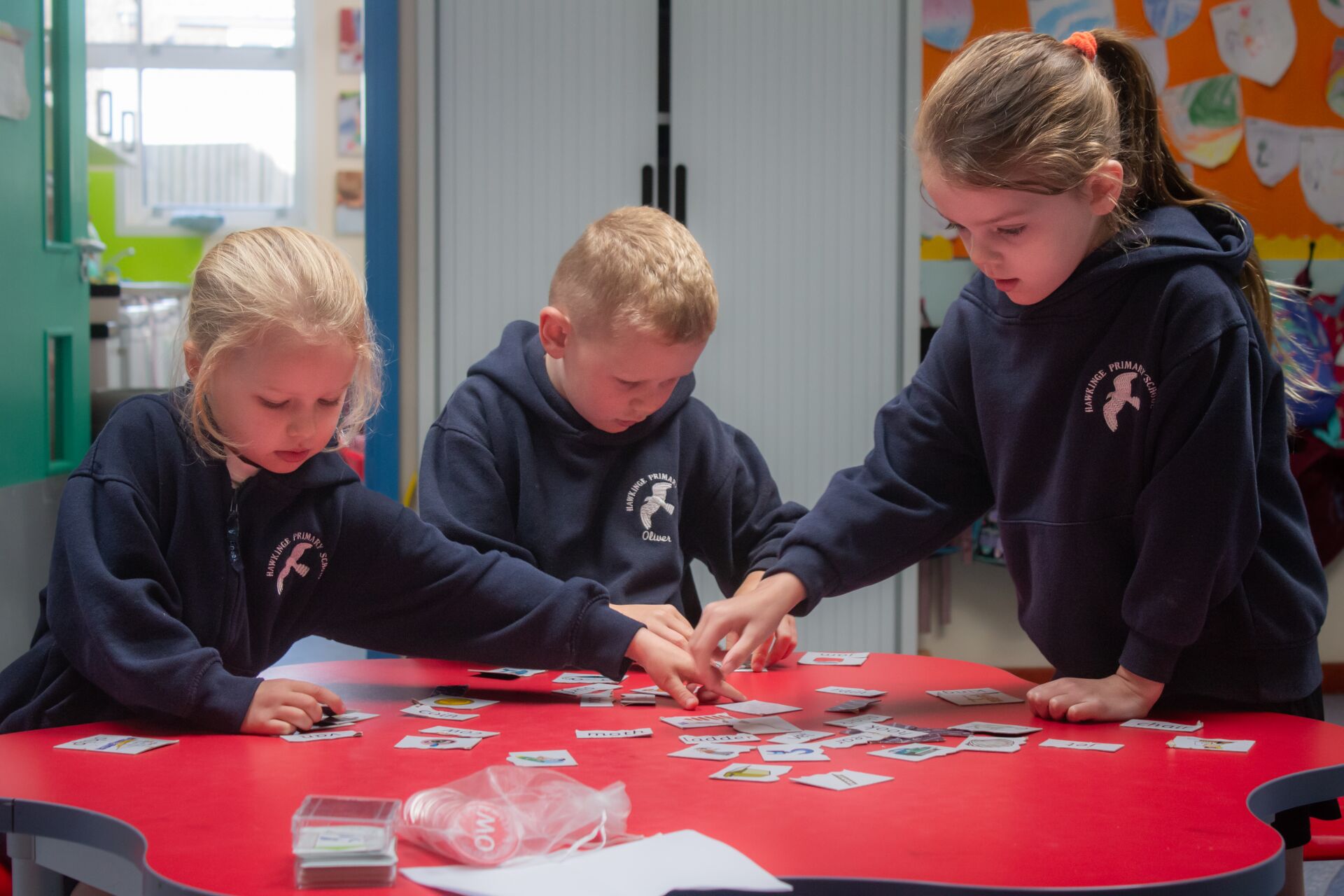Our Curriculum
Since 2011, our curriculum review focused on a balanced and stimulating programme. Emphasizing local resources, we integrate history, geography, science, and the arts. We foster resilience, independence, and lifelong learning for well-rounded, global citizens.
Below is the ‘story’ about how our school curriculum was developed – to find out more, go to the class pages and have a look at this years curriculum overviews.
Our Story
From the beginning of this process we decided we wanted to ‘launch’ each curriculum theme in an interesting and inspiring way to excite the pupils and stimulate their interest in the theme for the term. We also knew that telling them more about the ‘bigger picture’ would give the children something to hook their learning onto as the term developed. Launch Pad events have changed over the years but regularly include inviting visitors into school (with a history / art / drama or music focus), school trips/ field trips to different locations – especially to support the geography curriculum or the children using our cookery suite to taste and cook traditional food from the country they are learning more about. Some terms, pupils attend a carousel of workshops associated with their themes or use a piece of art work as a stimulus to launch their theme. There are numerous photographs on the school website to show how we do this. Each half term the theme ends with a ‘Landing Pad’ event. This can be an assembly in the school hall when the year group present their learning to parents in a variety of ways, or an invitation to parents to visit the classroom for an afternoon, to watch a short presentation and to look at their child’s books. This is a great way for pupils to share their learning with parents, at the same time as supporting pupils’ development of speaking, language and presentational skills.
We also decided that our curriculum themes would be question-led each term centered around a broad question, with the intention of inspiring the children to want to learn more about their theme and to ensure there was a clear purpose to it, encouraging children to adopt an investigative approach to their learning.
More recently in our annual curriculum reviews we have added new aspects to our whole school curriculum to further enhance learning – for example using fiction texts to support learning in science and PHSE, planning for cross curricular writing opportunities each half term to allow pupils to show their learning, including children’s questions to use as a stimulus to find out more during the half term theme, using history timelines to allow children to plot key events they are learning about in history in a sequence and even linking class names to key themes each year.
Over the years of implementing our curriculum our staff have been committed to constantly improving our curriculum and strive to make it ‘Gold Standard’. It is planned on a two year rolling cycle with each year adding between 2-3 new themes to the cycle. Sometimes these themes are whole school themes responsive to local / national events – The Triennial, Centenary of World War 1, the Olympics – others are particular to the year group. To ensure it is a ‘gold standard’ curriculum leaders are asked to audit and evaluate the curriculum on a regular basis using quality standard marks to review their area of the curriculum. We currently have been awarded an Arts Mark Gold award, Science Gold award, Geography silver award & Sports Silver award. Staff are in the process of completing QSMs for history, SMSC & wellbeing.
As our curriculum planning process has evolved, adaptations have been made: assessments have been embedded in the process, the use of high quality texts to inspire pupils and support their thematic learning, the use of Blooms Taxonomy to ensure high quality questioning and differentiation are integral in our curriculum, as are ensuring cross curricular opportunities are carefully planned for in subjects such as English, Science and Math’s. The increased level of pupil voice in the themes that have been taught is something the pupils in particular are motivated by. We regularly review whole school barriers for learning and plan for these areas carefully, eg poor working memory, language development and developing a wider vocabulary for children are and have been the key focus for improvement.
We are exceptionally proud of our ‘wider curriculum’ at Hawkinge Primary School and feel that its successes are that it inspires and motivates children and staff alike and that the quality for many of the curriculum areas have been recognized by accredited bodies. The impact of this broad, balanced and stimulating curriculum is that children are keen to learn and are excited by learning. Many more pupils, year on year, take up and complete their homework challenges independently. Parents are well involved in the education of their pupils – preparing them in half term holidays for the themes for the term ahead by reading books that support the new theme or taking their children on local trips to introduce them to their new theme, enjoying the Landing Pad assemblies and asking for us to provide workshops to ‘upskill’ them in areas of the curriculum so that they can best support their children. The learners challenge themselves in lessons and develop learning skills which will support them as lifelong learners ensuring they are best prepared for the next stage in their lives. The strong working links we have made with other local schools further enhance our curriculum, for example, termly PE events with our neighboring school for all year groups and enrichment days at a local secondary school for pupils in Years 5 & 6.
We continue on this journey using feedback from Quality Standard Mark assessments, CPD opportunities and professional reading / research to continue to develop our school curriculum to make it into the ‘Gold Standard’ curriculum we strive for, for the pupils in our school.
To find out more about the themes for this year go to the link entitled ‘Learning Themes’. For a termly overview of what the children are learning, go to the class pages and open the ‘Curriculum Overview’ document.
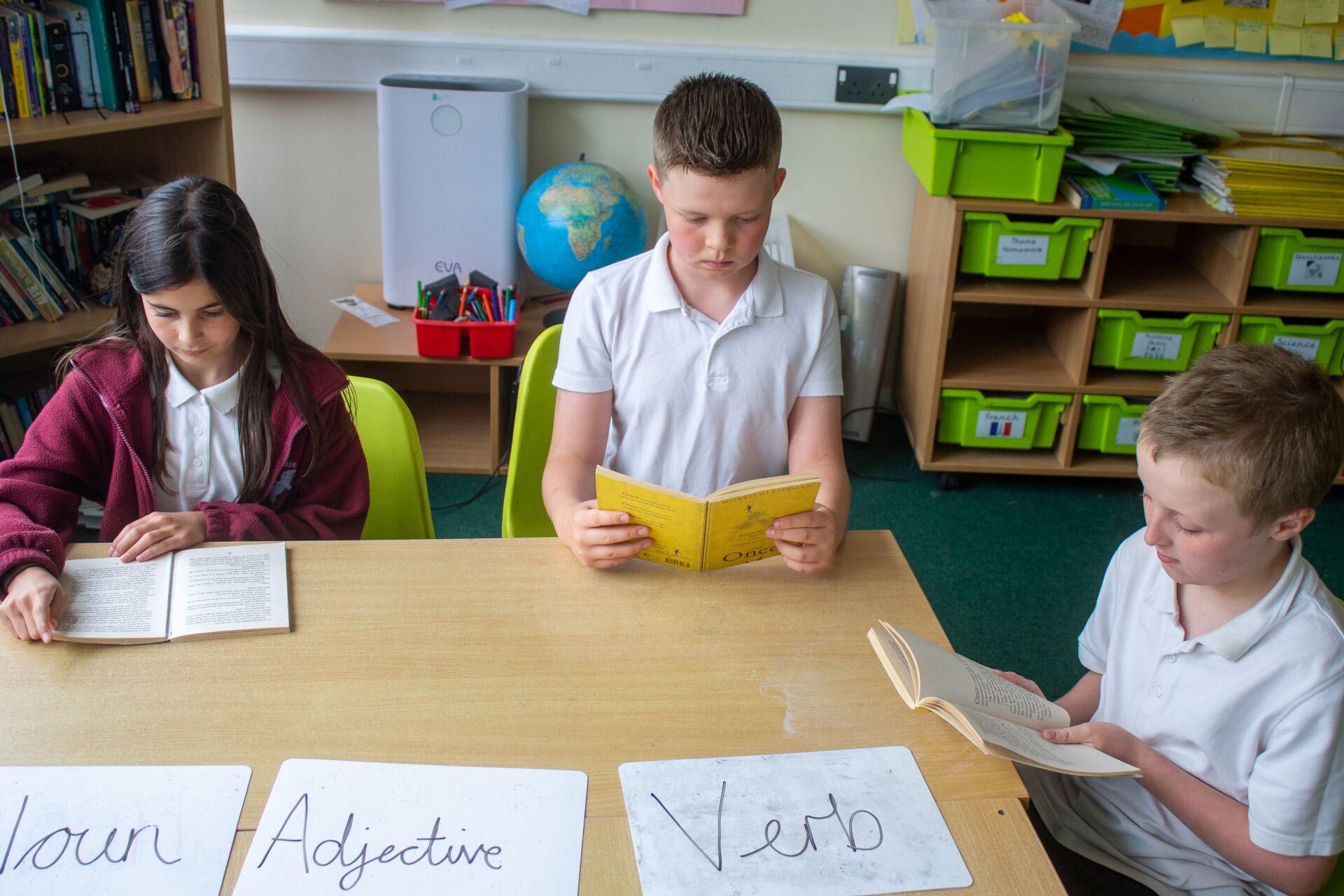
English and Maths
In Years 3, 4, 5 & 6 English and maths lessons are taught in sets. Each lesson is an hour long, and almost all English and maths lessons are supported by a Teaching Assistant too.
- We follow the National Maths Strategy for teaching maths, and the National English Strategy for teaching English.
- Years 1 & 2 phonics is taught in sets (to find out more about how we teach phonics go to ‘Phonics and reading’).
- Throughout the school children are taught to read on a daily basis using the guided reading approach (to find out more about how we teach reading go to ‘Phonics and reading’) Each week every child in the school will have a guided reading lesson from a teacher and from a TA.
- At the beginning of Year 2, children will be given a ‘Times Table Passport’. This is designed to encourage and reward children who practise and learn their tables, so that by the end of Year 4 they know all multiplication and division facts up to 12 x 12. To find out more about this, please click here.
Computing
Computing is integrated into all lessons in school. We have 90 laptops which are used in lessons from geography to PHSE. ICT lessons are taught using a planned scheme of work which links to the termly theme where possible.
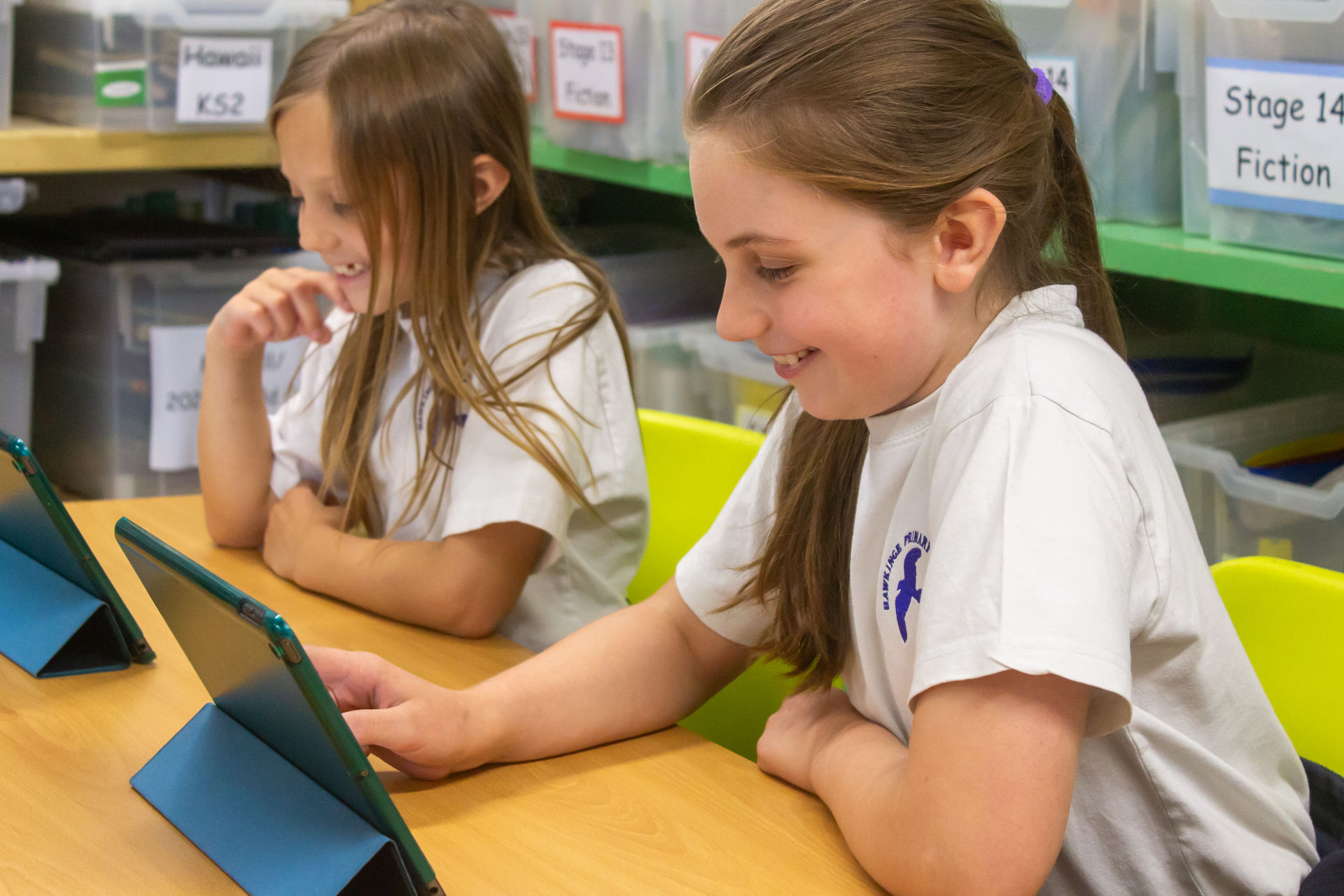
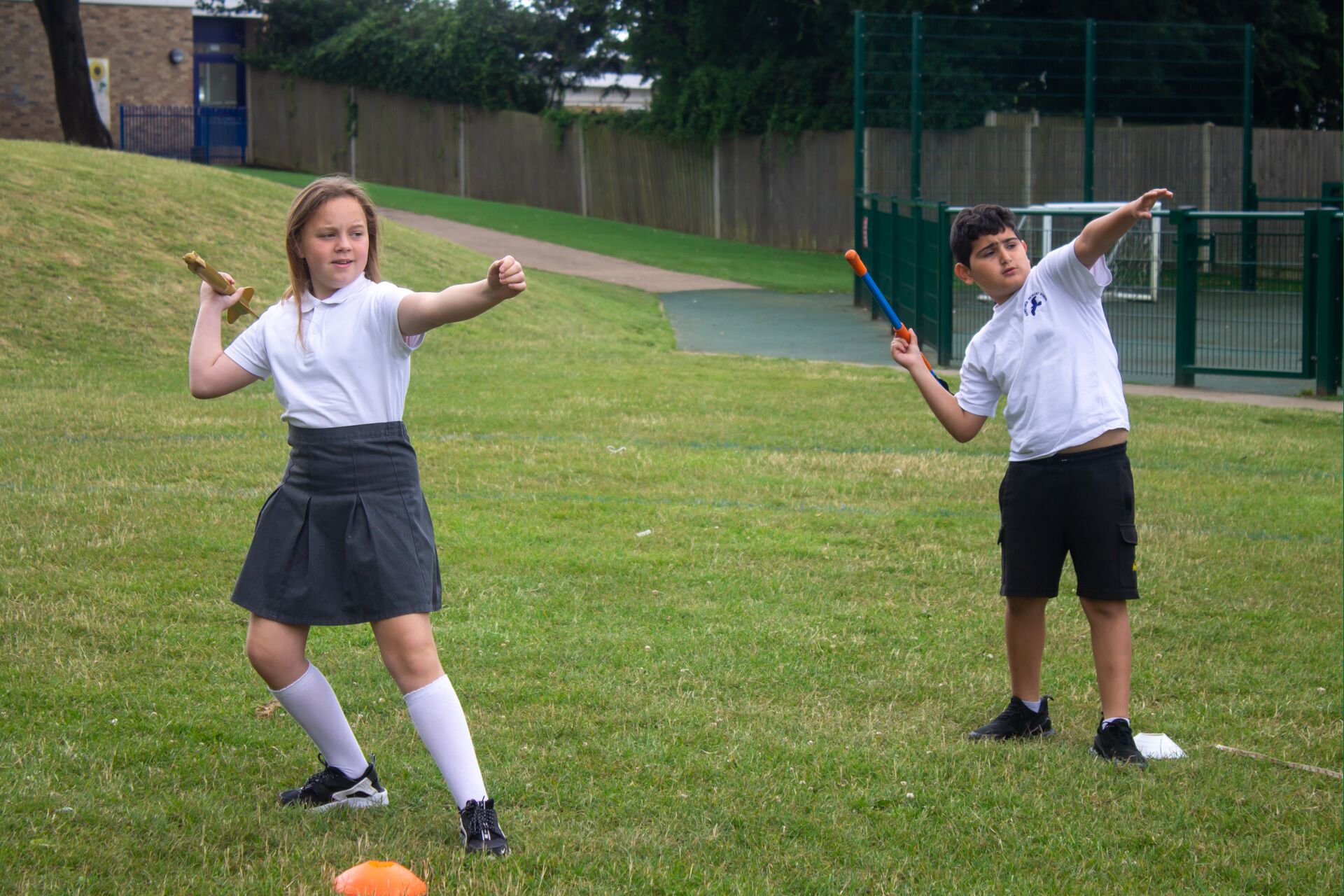
PE
We aim to teach 2 hours of PE a week. Children in KS2 have an indoor and an outdoor PE lesson each week (weather permitting!)
Keep Up Catch Up
We run an intervention at school called Keep Up Catch Up (KUCU) twice a day. At the end of each English and maths lesson the teacher and TA discuss the progress the children have made and identify a group of children who would benefit for a short intervention session before the next English / maths lesson to revisit the objective of the day to ensure they have a good understanding before the next lesson. This intervention was introduced 2015-2016 and it proved to be very successful. The children shared their views about it in their ‘Pupil Voice Session’ at the end of the year (see the Pupil Voice page for their views).
